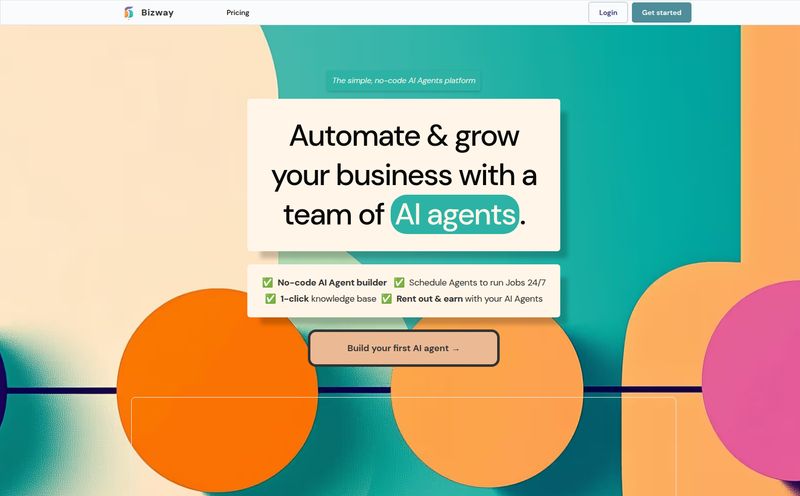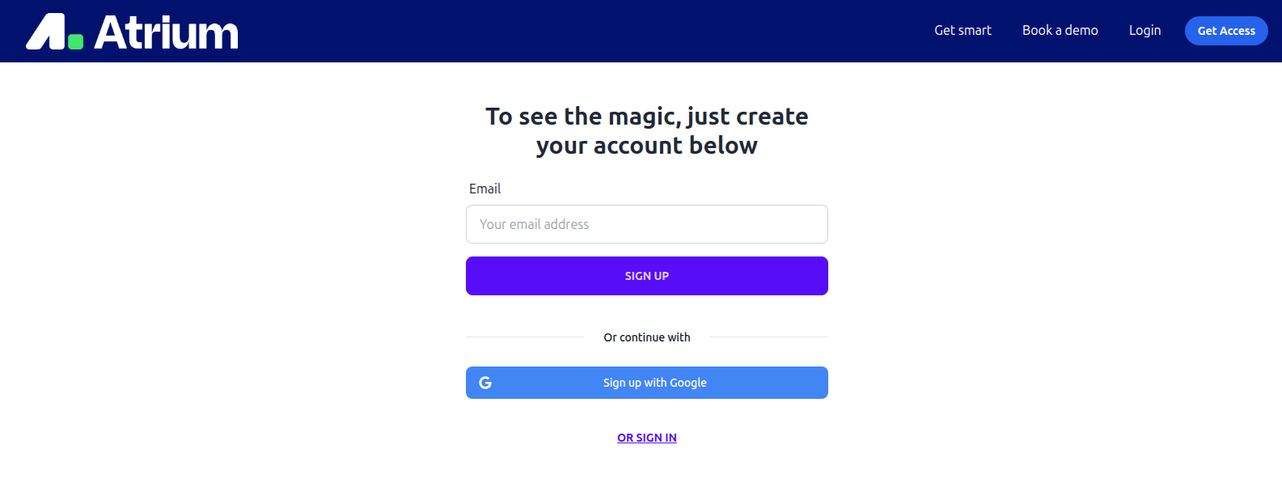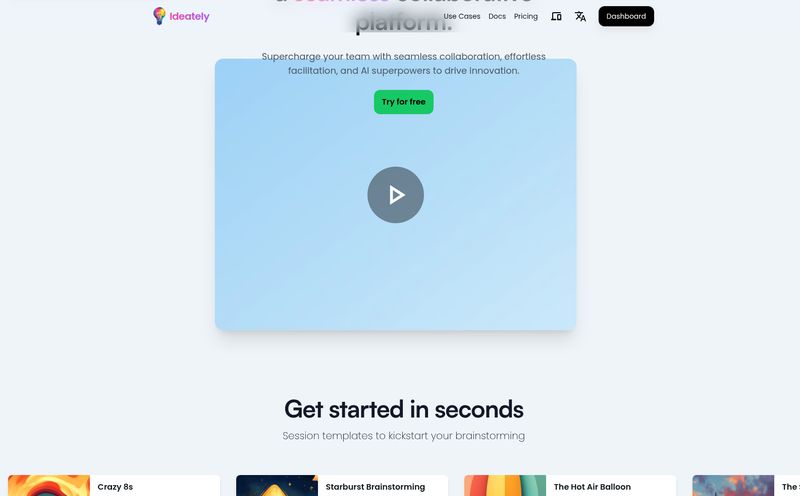How many of us have started a fitness kick with all the enthusiasm of a golden retriever, only to have it fizzle out a few weeks later? You buy the gear, you watch the YouTube videos, and you follow some generic, one-size-fits-all plan that has you doing burpees until you question all your life choices. I've been there. My browser history is a graveyard of abandoned "30-day shred" challenges.
The problem is often a lack of personalization. That workout you found was designed for a 22-year-old athlete, not for you, a person who considers carrying all the groceries in one trip a legitimate strength-training exercise. This is where the world of tech has been whispering sweet nothings in our ears, promising a better way. And lately, the whispers have gotten louder, talking about a tool called Joe.
The pitch is simple and, I'll admit, incredibly tempting: Joe is your personal AI-powered Fitness Coach. It's supposed to be like having a trainer right there in your pocket, ready to build a plan just for you. No more cookie-cutter routines. Sounds pretty great, right? But as someone who's seen a lot of tech fads come and go in the traffic generation space, I've learned to be a healthy skeptic. So, I decided to dig in.
So, What Exactly Is This Joe Thing?
From what I've gathered, Joe isn't just another workout app with a pre-loaded library of exercises. It's pitched as an intelligent system. You tell it your goals—maybe you want to lose a few pounds, build some muscle, or just be able to climb a flight of stairs without needing a nap afterwards. You also tell it your current fitness level (be honest!) and what you actually like doing. The AI then takes all that data and acts like a digital mastermind, crafting a workout plan that is supposedly unique to you.

Visit Joe AI Fitness Coach
Think of it like a GPS for your fitness. You wouldn't use a map from New York to Los Angeles if you were starting in Chicago, right? Joe aims to be that precise starting point, creating a route based on where you are now and where you want to go. It's a fundamental shift from the mass-market approach we're all so used to.
How Joe Aims to Craft Your Perfect Workout
The secret sauce is in the data. The entire system hinges on the information you provide. It's a conversation, albeit with an algorithm. It wants to know:
- Your Goals: Are you training for a 5k or for the 'carry all the bags' championship?
- Your Level: Are you a seasoned gym-goer or is your primary exercise walking to the fridge?
- Your Preferences: Do you hate running but love bodyweight exercises? Do you have access to a full gym or just a yoga mat and a can-do attitude?
The Good, The Bad, and The AI
No tool is perfect, and I've been around the block long enough to know that for every amazing feature, there's usually a catch. So let's break down what I'm seeing with Joe.
Why I'm Genuinely Intrigued (The Upsides)
The convenience factor is massive. Let's talk cost. A good human personal trainer can cost anywhere from $50 to well over $150 an hour. That adds up fast. While we don't know Joe's pricing yet (more on that in a sec), it's almost guaranteed to be a fraction of that. You get access to a 'coach' on your schedule, not theirs. The idea of getting a custom workout plan while sitting on my couch at 10 PM is pretty compelling.
Then there's the customization itself. The app is built to cater to your fitness level and preferences, which is a game-changer for motivation. If you enjoy your workouts, you're infinitely more likely to stick with them. It’s that simple. This could be the antidote to the boredom and burnout that kills so many fitness resolutions.
A Few Things to Keep in Mind (The Downsides)
Okay, let's ground ourselves. The biggest potential pitfall is right in the process itself: it requires honest and accurate input from you. If you tell the AI you can do 20 pull-ups when you can barely do one, you're going to get a plan that will crush your spirit. The AI is smart, but it's not a mind reader. Your results will be directly proportional to your honesty. Garbage in, garbage out, as they say.
More importantly, and this is a big one, an AI is not a doctor. The creators seem to know this, noting that it might not be suitable for users with complex medical conditions without consulting a physician first. This is just responsible advice. If you have a serious injury or a chronic health issue, your first stop should always be a medical professional, not an app store.
A Little Bit of Real-World Investigation
Here's where things get interesting. As part of my usual process, I went to find the official website, look for a demo, maybe a pricing page. And I hit a wall. A 'Page Not Found' error, to be specific. Now, this could mean a few things. It could be a temporary glitch. It could mean the tool is so new it's still in a closed beta. Or maybe they're overhauling everything for a big public launch. Whatever the reason, it adds a little layer of mystery. It feels like we're on the ground floor of something, but the doors haven't quite opened yet. Honestly, it makes me more curious.
So, What's the Price Tag?
This is the million-dollar question, isn't it? Given the website issue, there's no official pricing information available. We can only speculate. In the current market, we see a few common models for these kinds of AI fitness apps:
- A freemium model, with basic plans for free and a premium subscription for advanced personalization and features.
- A straight monthly/annual subscription, common for services like Peloton or Freeletics.
- Potentially a one-time purchase, though that's less common for services that require ongoing AI processing.
FAQs About the Joe AI Fitness Coach
- Is Joe AI good for beginners?
- Absolutely. In theory, that's one of its biggest strengths. Because it tailors the plan to your current fitness level, it should be able to create a gentle, effective starting point for anyone just getting into fitness.
- Can Joe completely replace a human personal trainer?
- It depends. For self-motivated individuals who need direction and a solid plan, it could be an amazing and affordable alternative. However, if you need the in-person accountability, form correction, and hands-on motivation a human provides, an app can't fully replicate that... yet.
- Do I need special gym equipment to use Joe?
- Most likely not. A key part of its customization should be adapting workouts to the equipment you have available, whether that's a full home gym or just your own body weight.
- Is my personal health data safe?
- This is a crucial question for any AI tool. You should always review the privacy policy of any app you use. Reputable companies will use your data to personalize your experience but should anonymize it and protect it rigorously.
- What makes Joe different from other fitness apps?
- Its main differentiator seems to be the depth of its personalization. While many apps have workout libraries, Joe's core function is to be a 'coach' that builds a truly bespoke plan from the ground up based on your specific inputs.
- Where can I download the Joe app?
- As of this writing, the official website is down, so a direct link isn't available. The best bet is to keep an eye on the Apple App Store and Google Play Store, or search for announcements from the developers.
My Final Thoughts on Joe
So, is Joe the future of fitness? It's too early to say for sure, especially with the tool playing a little hard-to-get right now. But the concept is incredibly sound. The move towards hyper-personalization powered by AI is the next logical step for digital health and wellness.
By offering a truly customized roadmap, tools like Joe have the potential to solve the biggest problem in fitness: adherence. They can make fitness more accessible, more affordable, and frankly, more enjoyable. I'm optimistic. I'll be keeping a close eye on this one, and the moment that 'Page Not Found' error disappears, you can bet I'll be the first in line to give it a try.
Reference and Sources
- For more on the trend of AI in the fitness industry, check out this insightful piece from Forbes on AI's transformation of fitness.



